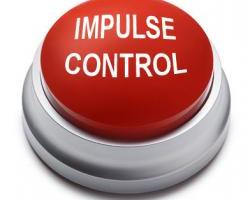Compulsive liars, sometimes called habitual liars, will lie for no reason at all, without any motive whatsoever. They tend to lie without premeditation, meaning they are inventing their lie on the spot.
This kind of compulsive behavior is generally considered to be along the obsessive-compulsive spectrum, specifically an impulse control disorder.
Since they are not regarded as skilled liars and since they often improvise, they don't tend to get any better at lying over time, leaving them exposed to a number of noticeable characteristics.
Unnecessary Explanations
Compulsive liars often expand upon answers to questions when there is no reason to do so, adding otherwise pointless detail and other non-sequitars. This is one form of avoiding having to answer a direct question—by expounding on aspects that have no bearing on the matter at hand.
Rapid Subject Changes
Compulsive liars don't always ramble out long and unnecessary answers to questions or descriptions of activities. Sometimes their answers are short and they move ahead to change the topic, often abruptly. It is one way to put into concrete a lie and imagine that the lie has been accepted as truth.
Telltale Body Language
Although a compulsive liar may be able to look you square in the eye and lie, ultimately most prefer to avoid too much eye contact—a trait that many are unaware of. Furthermore, compulsive liars may unconsciously seek to misdirect attention by behaving erratically, in a shifty manner by seeming to move items around on a table or seek to put some distance between themselves and the person they are speaking with.
Inability to Keep One's Story Straight
As any cop knows, the problem with lying is that you can easily forget your old lie and tell a new one in its place. The end result is a string of different lies recounting the same event told to different people. Compulsive liars may do this out of convenience or they may be working towards the best version of the lie. They tend to do so without premeditation.
A Readiness to Be Defensive
When confronted with a lie, compulsive liars may choose to become highly defensive (or they may respond defensively because they are being challenged). Liars may do so to buy time and find a way out of the situation, or they may be trying to inflict guilt upon the accuser, as in, how dare they accuse you of lying when all you've ever done for that person is be a good friend. Defensiveness, coupled with misdirection, is a hallmark of compulsive lying.



